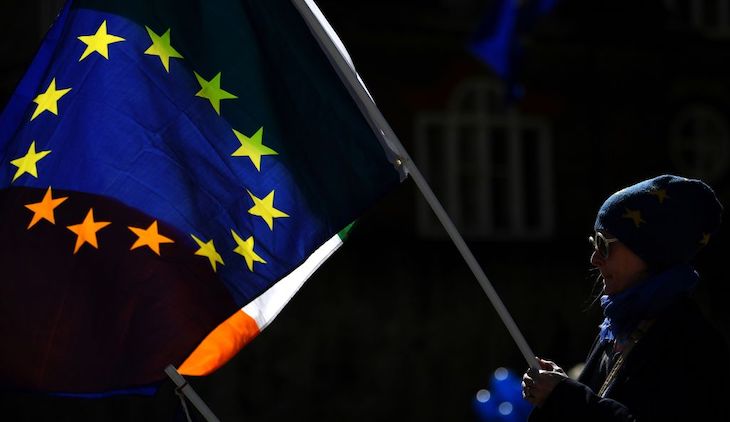Ireland is reaping the benefits of a Brexit bonus to the tune of €700 million (£600 million). It is not hard to understand why hardcore Remainers are gleefully reporting the news that the government in Dublin is collecting huge extra revenues, much of which comes from imposing tariffs on British goods.
What is being reported as a ‘Brexit bonanza’ for the Irish isn’t quite what it seems
‘The level of customs duties has effectively doubled in recent years compared to the previous decade, reflecting the transformation of Great Britain into a third country in 2021,’ says the Irish Revenue Commissioners. British companies suffer, and a foreign government makes lots of extra money; no wonder some of Brexit’s critics are saying: I told you so.
But hold on. In fact, what is being reported by the Guardian as a ‘Brexit bonanza’ for the Irish isn’t quite what it seems – and it is Irish consumers who will pay the price. What has actually happened is that Ireland, as a member of the European Union, has imposed big tariffs on its major trading partner. The UK, not very surprisingly, accounts for 21 per cent of Irish imports, compared with 16 per cent for the United States, its next largest source of goods. It buys a lot more from the UK than it sells the other way around, with a net trade surplus of £25 billion annually in favour of Britain.
So all Ireland has done is impose whopping tariffs on goods imported into the country, which is likely to make them more expensive to buy. In effect, it looks like a big tax hike. Even more oddly, nearly all the money goes to Brussels instead of Dublin. Under EU arrangements, a member state can retain 25 per cent of duties elected, with the remainder going into the bloc’s overall central budget.
As it happens, the Irish government doesn’t need the money anyway. It is running such a huge budget surplus from helping American multinationals with their tax bills (sorry, providing a base inside the EU for global tech) that it is setting up a sovereign wealth fund to invest all the extra cash it has coming in.
The truth is that this is a bad time to be hitting consumers in the pocket. Ireland had an inflation rate of 8.5 per cent last year, one of the highest within the euro-zone. Meanwhile, last year 77 per cent of households reported that they were struggling to make ends meet given that the cost of housing, power, and food, was all soaring. Given that those exporting to Ireland from the UK are having to pay more, this will ultimately be passed on to Irish consumers – and make a dire financial situation worse.
You can describe the hundreds of millions of pounds of revenue collected by Ireland on British goods as a ‘bonanza’ if you want to. But it probably doesn’t feel that way to ordinary Irish people trying to cope with the cost-of-living crisis.






Comments